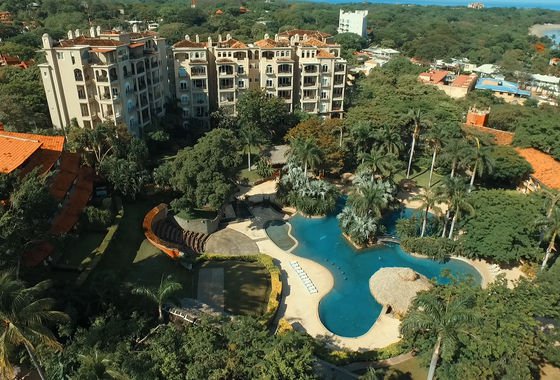An Introduction
by Ramon Chavarria
The Costa Rican property legal system is based on Romanic and civil law, making it a distinct legal structure compared to most common law countries. Costa Rica’s constitution and laws strongly protect private property rights. The Costa Rican Constitution states that both foreigners and nationals have equal rights, with the exception of beachfront property, which has certain limitations. Foreign individuals and entities generally do not face legal restrictions when buying land in Costa Rica.
Costa Rica has a well-organized system for property registration and titling. Almost every lot, farm, or piece of land is registered at the National Register. This register maintains computerized records of properties, including measurements, location, ownership, mortgages, surveys, and other important information. To determine if a property can be purchased, two register records need to be reviewed: 1) the registration for the property at the National Register, and 2) the cadastral survey registered for the property. If the property’s registration shows a clear title (meaning no registered liens or encumbrances) and the cadastral survey matches the registered description, it is highly likely that the property is suitable for purchase. This system ensures that real estate transactions are relatively easy and secure, aiming to protect property ownership rights and facilitate the sale, mortgage, and other real estate contracts. The availability of the Register’s online platform allows for easy access and widespread public visibility.[1]
In summary, the following property situations can be found in Costa Rica:
- Regular titled property: This is the most common property situation. Title registration is obtained either through a judicial titling procedure for unregistered land or through the subdivision of a property, resulting in an individual title for each segment.
- Non-titled property: This is usually found in rural areas where the property has not undergone the registration procedure. A judicial process is required to obtain title and register it.
- Beachfront lots: Beachfront areas are not considered real estate property and are not typically titled. These areas are usually owned by the state but can be leased by private individuals for renewable periods of up to 20 years. Foreigners cannot directly purchase these rights, but it is often accomplished through a commercial corporation. There are very few fully titled beachfront properties that were registered before the enactment of the law establishing the current system.
PROPERTY PURCHASE DUE DILIGENCE
While a preliminary register search can indicate if a property is suitable for purchase, it is highly advisable to conduct thorough due diligence on the property and the legal entity that may own it to identify and address any compliance and legal issues that may affect the transaction. The extent of the due diligence procedure varies depending on the type of property and the level of security required by the buyer. A standard due diligence for a residential lot should include, at a minimum, the following:
- Register title search
- Historical register title search
- Registered cadastral survey
- Analysis of possible liens and encumbrances on the property
- Analysis of the seller’s corporation, including review of legal books, stock certificates, power of attorney structure, registered amendments, tax filings, contracts, and other properties owned by the company
- Confirmation of corporate tax payment by the seller
- Confirmation of Social Security (CCSS) payment by the seller
- Confirmation of luxury home payment by the seller
- Confirmation of municipal land tax payment by the seller
- Zoning or land use review
- Verification of drinking water availability
- Verification of electrical service availability
- Assessment of possible environmental restrictions on the property (e.g., location within a national park or protected area, proximity to water sources, forests, or beaches)
- Investigation of any ongoing litigation affecting the property or the seller
- Confirmation that the seller (if a legal entity) has the required Board of Directors’ approval for the sale
- Verification that all utilities are fully paid
- Examination of building permits for existing constructions
- Credit verification search for the seller
- Review of the seller’s identification documents and references
- Collection of “know your client” information for both parties
- Calculation of closing statement amounts
TITLED PROPERTY TRANSFERS
The sale of titled and non-titled property in Costa Rica is legally executed through a notarial act. The parties involved must engage the services of a Notary Public who prepares a title transfer deed to be signed by all parties. Ownership is transferred upon the execution of the title transfer deed (“escritura“). The Notary is responsible for collecting the applicable title transfer tax, fiscal stamps, and registration fees. Customarily, the notarial fees amount to 1.5% of the purchase price, while the title transfer taxes, fiscal stamps, and registration fees account for approximately 2.4% of the purchase price. The distribution of these costs is typically shared 50/50 between the seller and the buyer, although it can also be agreed upon for the buyer to cover the full expenses. Once the transfer deed is executed, the Notary is legally required to register it at the National Property Register, along with the payment of all registration taxes and fees. While optional, title insurance services are available from reputable international providers such as STLA (previously Stewart Title), First American Title Insurance, and other.
ESCROW SERVICES
Most foreign individuals purchasing property in Costa Rica use escrow services. This arrangement provides both parties with comfort during the closing process, as a trusted third-party escrow agent securely holds the purchase price payment and disburses it after the signing of the transfer deed. Escrow services have become increasingly important due to recent money laundering regulations that have made fund transfers more complex.
PROPERTY LAND TAX
Real estate titled property in Costa Rica is subject to a yearly property tax of 0.25% of its value. This amounts to 2,500 Colones for every 1,000,000 Colones of value if paid annually or 625 Colones for every 1,000,000 if paid quarterly. Municipal governments collect property tax on a quarterly basis but often offer discounts for yearly payments. The tax calculation is typically based on the recorded value at the Tax Ministry, which can be increased by the transactional value recorded by the parties during the property purchase or by the owners’ declaration, which is required to update the value at least every five years. Property tax administration and collection are handled by local governments (Municipalidades).
CAPITAL GAINS TAX
Real estate titled property purchased in Costa Rica after July 1st, 2019, is subject to a capital gains tax at a rate of 15% on the positive difference in price between the purchase price (including any investments on the property) and the sale price. When the seller is a foreign individual (not a company), the Notary is obliged to retain a 2.5% capital gains tax calculated based on the total selling price. The purchase price can be adjusted based on the cost of living increase approved by the Central Bank at the time of the tax calculation. Owners should maintain proper documentation of any investments and improvements made to their properties, as these amounts can be added to the purchase price.
MORTGAGES IN COSTA RICA
In Costa Rica, there are legal requirements for mortgages to follow specific formalities to enable creditors to foreclose in the event of loan default. The main prerequisites for a mortgage to be registered include entering into a mortgage agreement before a Costa Rican Notary following specific formalities and paying the registration taxes. Once registered, the mortgage agreement becomes a public document accessible to anyone conducting a register search on the property. An unregistered mortgage cannot be enforced in court.
Additionally, if a property does not show a mortgage in the Register, the owner can legally sell it without any such obligation, and the buyer acquires the property free of any mortgage.
MORTGAGE FORECLOSURE
In the event of mortgage default, the case must be presented to a civil judge with jurisdiction over the matter. The judge will only initiate the case if presented with a registered property certification showing a mortgage. The foreclosure procedure takes approximately 5 months and involves auctions where the property is offered to bidders to recover the mortgage amount. If no acceptable bids are received, the mortgage holder can choose to keep the asset as payment. Mortgage collateral is commonly used by most local banks and foreign banks with local operations, such as Citibank, Scotiabank, HSBC, and others. International title insurance providers offer title insurance services for real estate properties and mortgages.
[1] The http address is: http://www.registronacional.go.cr/ Real Estate properties are found at the BIENES INMUEBLES section in the website.


